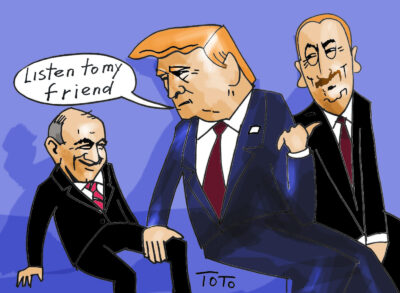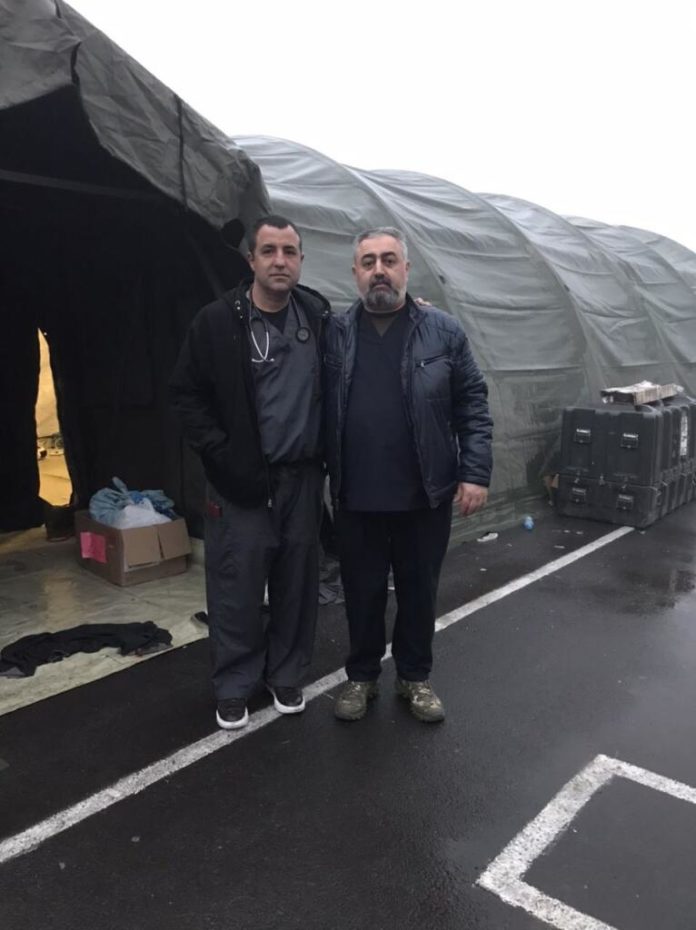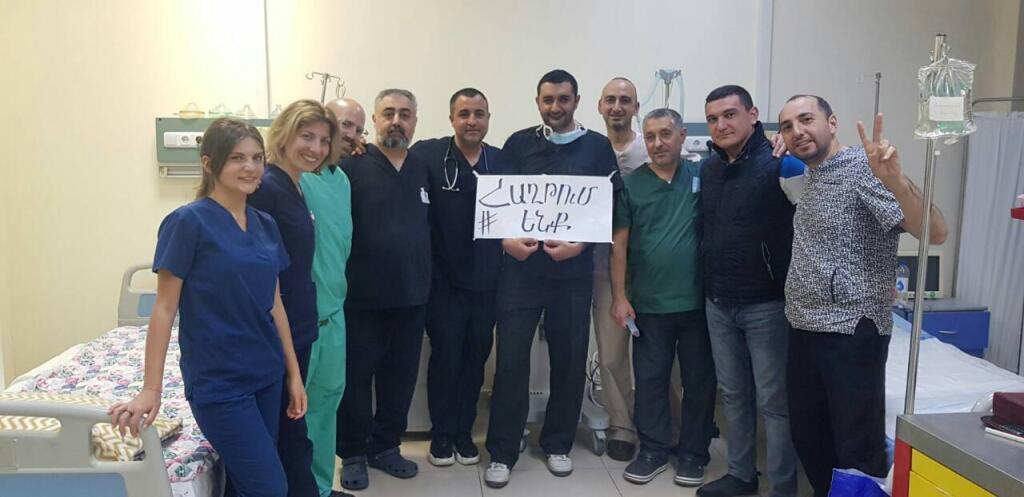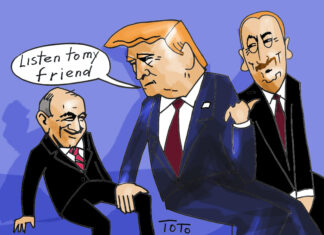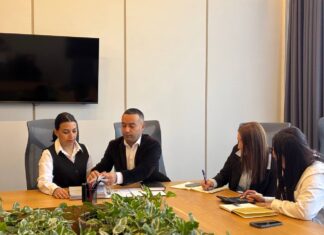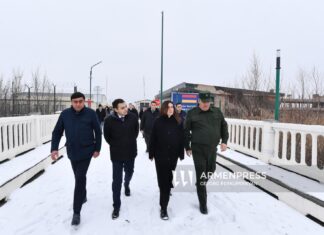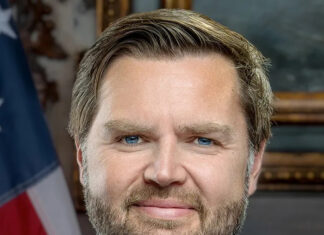LOS ANGELES — Dr. Armen Hovhannisyan, an internal medicine and intensive care specialist from Los Angeles, was in Miami, attending his friend’s birthday party when he learned that war started in Artsakh. The party was canceled. He returned to LA immediately, bought a ticket and left for Armenia on October 2. Upon arrival he was appointed by the Ministry of Health of the Republic of Armenia to Goris Medical Center, in Goris naturally, where he treated soldiers during the most critical first days of the war. He continued his journey to Khndzoresk, Ishkhanadzor, Kashatagh, Shushi and finally Kapan, when the war was over. “I was at the surgery room when I got the news that the cease fire was signed. We stayed four more days in Kapan. Then I was back to Yerevan and continued my work in the different hospitals there until December 2. Two months of war…”, remembers Dr. Hovhannisyan now in his private Los Angeles practice, sharing his story over lunch break.
During the entire time Dr. Hovhannisyan was working in critical care at the hospitals and the frontline. He says: “The critical care unit didn’t have any time to rest. Sometimes one patient needed more than one doctor. Everything was going through us: we were the ones who established whether the patient was going to surgery right away or in an hour, or if he was going to be operated on at all. Every doctor concentrated on a patient. The differences of specialization somehow disappeared.”
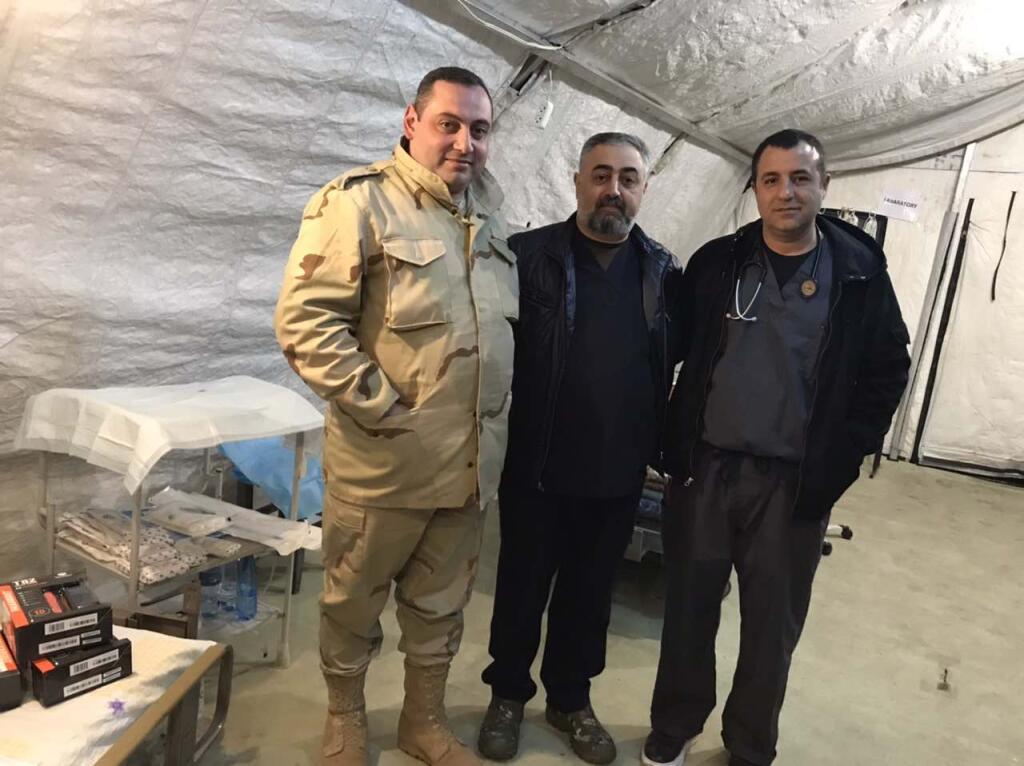
During the war, doctors rushed to Armenia and Artsakh from all over the world. The work was tremendous. Few had military medicine experience. Even fewer could imagine the magnitude of injuries they were dealing with. Dr. Hovhannisyan says: “None of us was ready for this reality. I don’t want any of my colleagues to get offended, but by my opinion, our enemy defeated us with his healthcare system too. I am not talking about the individual professionalism of my colleagues from the diaspora or Armenia; we have amazing doctors. But overall, military medicine was unprepared.”
Dr. Hovhannisyan agrees that there are a lot of differences in possible approaches of treatment. But all medical professionals were united like never before: “We were sleeping on the floors next to each other for days not even knowing [people’s] names. We were that busy. Days later, I even learned that one of the doctors is my neighbor in Los Angeles. We were asking questions, trying to find better solutions for the patient. The goal was one: to do everything possible to save our soldiers.”
Back in the US, the doctor evaluated his overall experience. He finds some significant structural aspects of foreign medicine absent in Armenia which made the situation worse during the war.
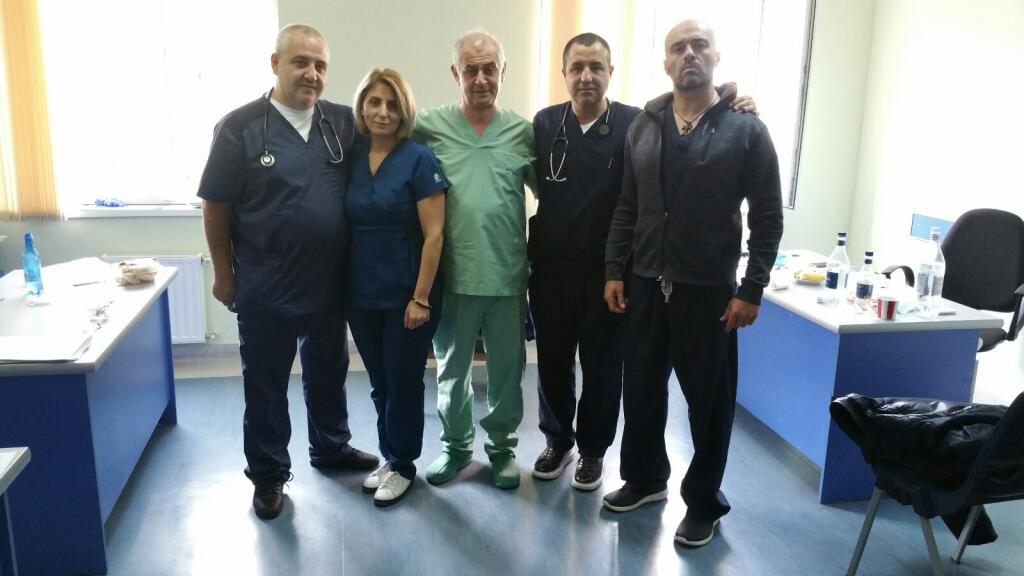
“We have brilliant surgeons in Armenia. However, young surgeons who are newly graduated from residency programs, having great theoretical knowledge and being honest doctors, practically were not prepared to perform complicated surgeries. Residency programs in Armenia don’t adequately prepare for practical aspects of surgery,” says Hovhannisyan.
